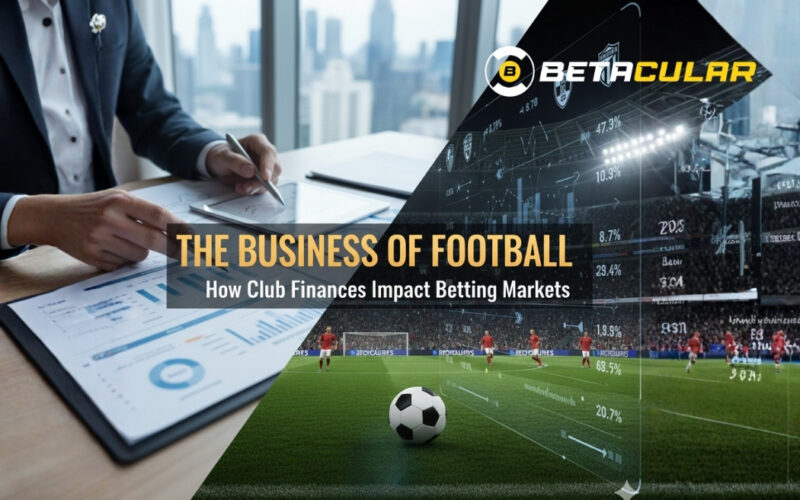The Core Link: How Club Finances Impact Betting
For the informed football bettor, the game doesn’t end on the pitch; it begins in the balance sheet. While factors like team form, injuries, and weather are crucial to setting football betting odds, a critical—and often overlooked—driver of long-term betting value is club finances.
The financial health, or distress, of a football club directly influences its ability to retain players, invest in squad depth, and ultimately, its on-pitch performance, which in turn alters the perception and pricing in the betting markets. Understanding this relationship is key to finding consistent value bets (see our guide on [Why Indian Bettors Prefer European Leagues: EPL, La Liga, and Beyond]).
The FFP Factor: Financial Fair Play and Squad Quality
The most powerful financial constraint in European football is the Financial Fair Play (FFP) regulation, introduced by UEFA to ensure clubs do not spend more than they earn.
1. FFP and Transfer Strategy
-
Spending Limits: FFP forces clubs to operate within their financial means, preventing them from financing massive transfer fees and wages purely through debt.
-
Impact on Odds: When a club is known to be under FFP scrutiny, it may be forced to sell key players or halt mid-season investment. This forced weakening of the squad is often underpriced by the general betting public, creating value for bettors who monitor financial reports.
-
Inequality: Critics argue FFP entrenches the power of already rich clubs (who generate higher commercial revenue), making it harder for smaller clubs to compete financially and challenging the competitive balance.
2. Debt and Financial Risk
-
Debt Risk: Clubs heavily reliant on debt or owner funding are at risk if the funding source disappears. Debt taken on to fund operations (not just infrastructure) is perceived as particularly risky.
-
Betting Insight: A club facing severe financial instability or a potential transfer ban often sees its odds lengthen. The shrewd bettor recognizes this off-field chaos and can exploit the emotional overreaction of the public, or conversely, Lay the struggling team.
Stock Returns and Unexpected Match Results
The similarity between gambling markets and financial markets is well-documented. The performance of publicly traded football clubs demonstrates a direct link between match results and financial value:
-
Negative Reaction to Losses: Stock prices of football clubs react more negatively to losses than positively to wins.
-
Unexpected Wins: Unexpected wins (where the betting odds suggested a loss) lead to an increase in the club’s stock returns and a stronger ability to generate future revenues (through sponsorships and media).
The Key Takeaway: The betting market’s efficiency—meaning how quickly and accurately football betting odds reflect the true probability—is proven to be a reliable measure of the unexpected outcome, which influences the club’s financial health.
The Betacular Advantage: Trading the Business of Football
The core principle of exploiting the link between Club Finances Impact Betting is simple: trade market inefficiency.
-
Monitor Financial News: Use insider knowledge of FFP penalties or unexpected player sales to identify mispriced odds before the general market reacts.
-
Lay the Overpriced: If a club has massive debt and poor wages-to-turnover ratios but remains a favourite due to public perception, Lay them (bet against them winning).
-
Exchange Model: Betacular’s [Exchange Betting] model is perfectly suited for this strategy, allowing you to act as the bookmaker to take advantage of the public’s emotional bias and secure superior, value-driven football betting odds. Always remember to practice [Responsible Gaming in Fast Live Card Games] when managing your budget.
Stop betting on fan sentiment. Start trading on financial reality.

